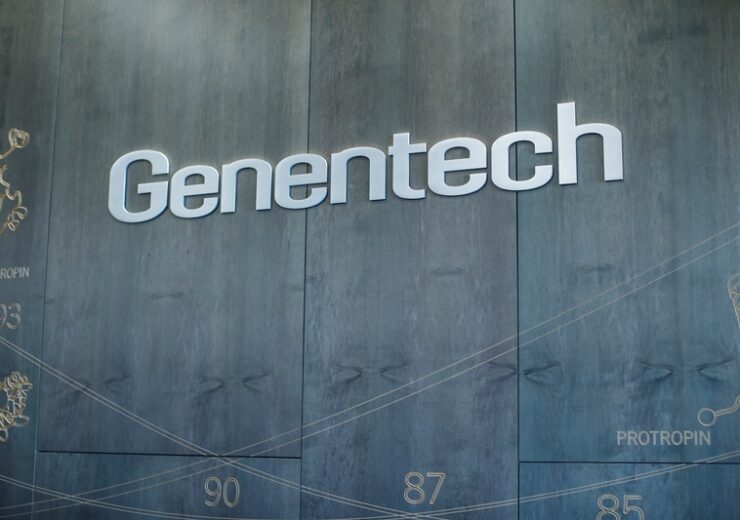The Tecentriq combination helped people live longer without their disease worsening or progression-free survival (PFS) than placebo plus Cotellic and Zelboraf

FDA approved Tecentriq combination to treat advanced melanoma. (Credit: F. Hoffmann-La Roche Ltd.)
Genentech, a subsidiary of Roche, has secured the US Food and Drug Administration (FDA) approval for Tecentriq (atezolizumab) plus Cotellic (cobimetinib) and Zelboraf (vemurafenib) to treat BRAF V600 mutation-positive advanced melanoma.
Tecentriq is a monoclonal antibody designed to bind with PD-L1, a protein expressed on tumour cells and tumour-infiltrating immune cells, to block its interactions with both PD-1 and B7.1 receptors to activate T cells. The drug was previously approved in the US for various other indications in oncology.
Cotellic is a MEK inhibitor, jointly developed by Genentech in collaboration with Exelixis. The drug, in combination with Zelboraf, was approved in the US, Europe and various other countries, to treat people with metastatic melanoma and a BRAF V600 mutation.
Zelboraf is a B-Raf enzyme inhibitor, jointly developed by Plexxikon and Genentech, for the treatment of people with late-stage melanoma and a BRAF V600 mutation. B-Raf enzyme is involved in a cell signalling pathway that causes abnormal growth in cancer cells.
Roche chief medical officer and global product development head Levi Garraway “When receiving a cancer immunotherapy combined with targeted therapies, patients with BRAF V600 mutation-positive advanced melanoma were able to live for more than 15 months without their disease worsening.
“Today’s FDA approval of this Tecentriq combination represents an important step forward for many patients living with advanced melanoma.”
Data from Phase 3 IMspire150 clinical trial supported FDA approval for Tecentriq combination
Melanoma is a rare, but aggressive form of skin cancer, which is curable if the disease is diagnosed early, but most people with advanced melanoma have a poor prognosis.
The FDA approval is supported by results from the Phase 3 IMspire150 clinical trial, which evaluated the combination of Tecentriq to Cotellic and Zelboraf in people with metastatic locally advanced melanoma and previously untreated BRAF V600 mutation.
Investigator-assessed PFS was the primary endpoint of the study, while overall survival, objective response rate, duration of response and other safety and pharmacokinetic measures include the important secondary endpoints.
In the study, the Tecentriq combination treatment helped people live longer without their disease worsening or progression-free survival (PFS) than placebo plus Cotellic and Zelboraf.
The safety profile observed in the Tecentriq combination was consistent with the known safety profiles of the individual medicines.
The most common adverse reactions observed in patients treated with Tecentriq plus Cotellic and Zelboraf include rash, musculoskeletal pain, fatigue, hepatotoxicity, pyrexia, nausea, pruritus, edema, stomatitis, hypothyroidism and photosensitivity reaction.
